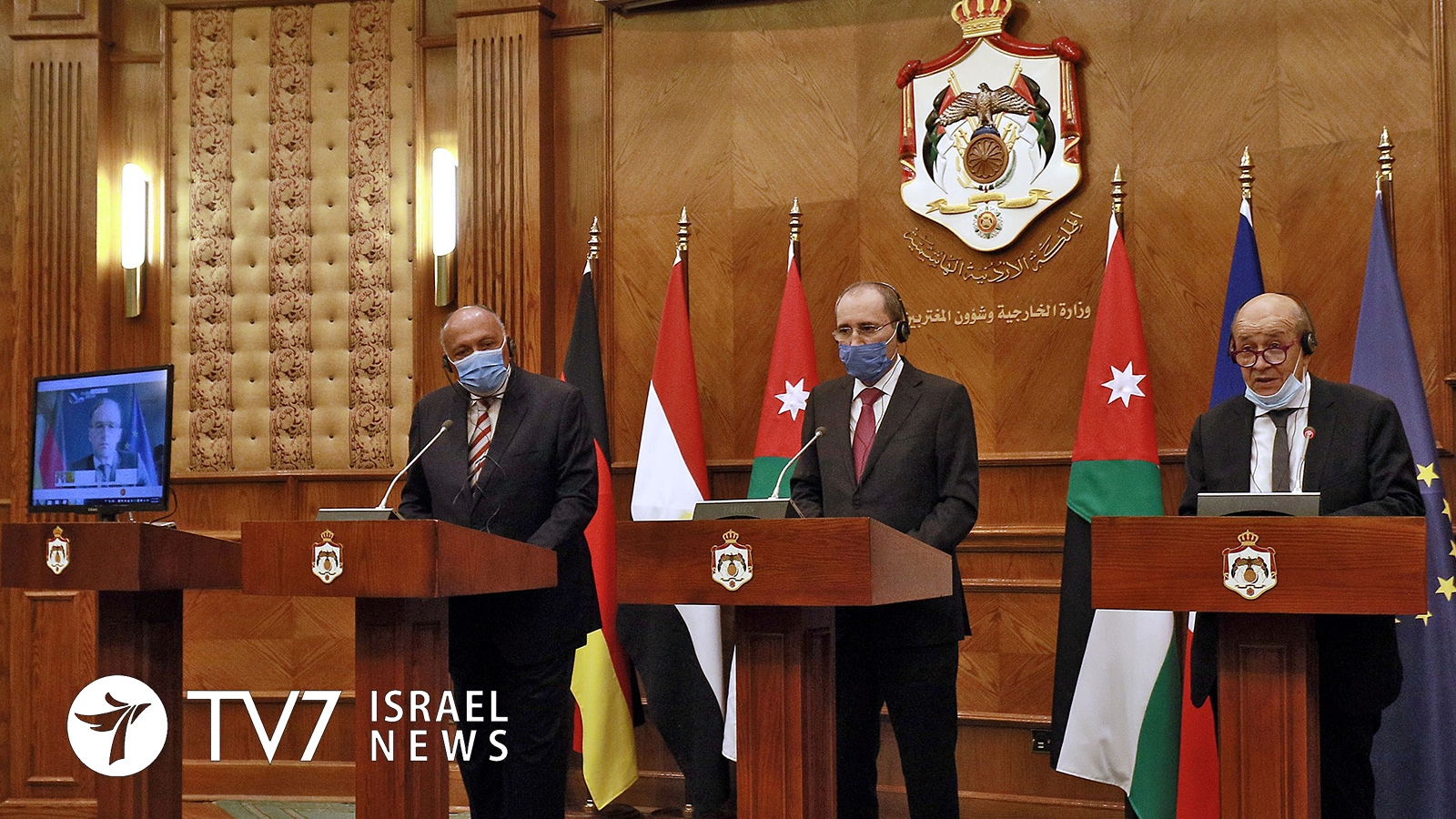The Foreign Ministers of Jordan, Egypt, France and Germany reaffirmed their joint commitment to the importance of reigniting negotiations between Israel and the Palestinians – in light of their apparent rejections of the United States’ regional approach to the decades-old conflict.
Speaking at a news conference held in Amman, French Foreign Minister Jean-Yves Le Drian insisted that “the Israeli-Palestinian issue is central to the region, especially in Jordan. I am convinced – being a friend of the Palestinians and the Israelis, that both nations won’t be able to achieve their aspirations at the expense of the other. This underlines the importance of our meeting in Amman, which was launched in Munich.”
Despite his nation’s refusal to back Washington’s initiative for Middle East peace – which produced the most significant agreements in over two decades – the French top diplomat acknowledged the benefits of Jerusalem’s normalization accords with Abu Dhabi and Manama. “Normalization of relationships between Israel and the UAE and Bahrain was a new dynamic that can contribute significantly to the regional stability,” said Le Drian.
For his part, Cairo’s top diplomat praised the U.S.-brokered “Abraham Accords” as an “important development” for the region. “Surely the developments in the last period, with the deals that took place between Israel, the Emirates and Bahrain are an important development that will lead to increased communication and support with the hope of reaching lasting regional peace based upon international laws and the elements agreed upon by the United Nations or the Arab League, including the Arab Peace Initiative,” said Egyptian Foreign Minister Sameh Shoukry.
Jordanian Foreign Minister Ayman Safadi has been one of the most outspoken critics of Jerusalem’s normalization with the UAE and Bahrain. After joining in talks with his colleagues in Amman, he appeared to adopt a more reconciliatory approach toward peace-building in the region. “We do have of course, continuous contact with our brethren in the Emirates and Bahrain,” said Safadi, adding, “We have excellent brotherly strategic relations with both countries, and obviously we continue to talk with them, with the Palestinians, and again with everybody, all friends and partners with a view to seeing how we can end the stalemate in the peace process and get the parties back to the table.”
It is important to note that German Foreign Minister Heiko Maas, who participated in the discussion via video-link, was forced to cancel his trip to Jordan due to being in quarantine after one of his bodyguards tested positive for the coronavirus.
In related developments, sources in the Persian Gulf revealed that the United States has recently been pressuring Qatar to officially normalize its bilateral relations with Israel.
In exchange, the Trump Administration would reportedly ensure the Persian Gulf states and Egypt would end their more than 3-year boycott of Qatar; that was launched in protest of Doha’s meddling in their own internal affairs, as well alleged support for terrorism and Iran.
A Qatari official revealed that his country rejected the U.S. proposal, and wanted to distinguish between the two issues.
